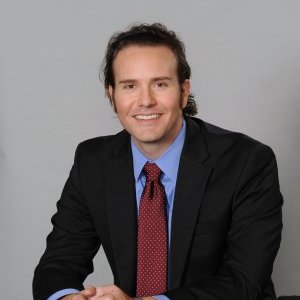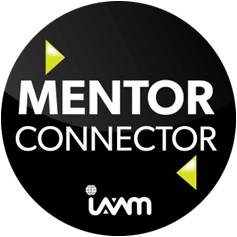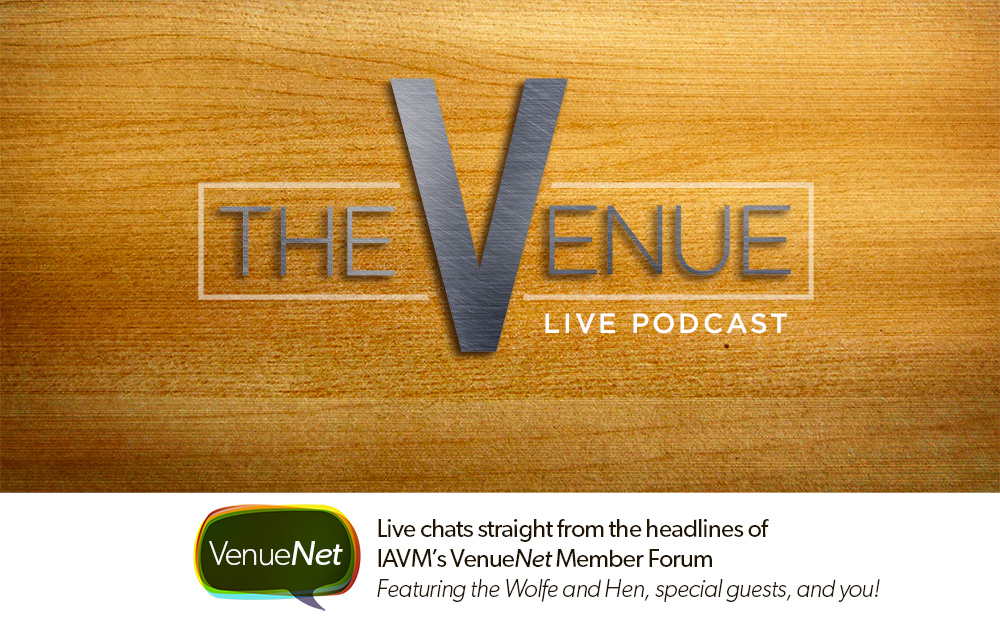Please Join Us for a New Episode of The Venue
We’re having fun producing our monthly podcast, The Venue, and we hope you join us this Friday, July 24, at 2 p.m. (CST) for another episode.
You can register at this link: https://attendee.gotowebinar.com/register/50090377894186342
We’ll be joined by our guest host, IAVM Chair Kim Bedier, CFE, and we’ll discuss a variety of topics, such as SMART goals for part-time/front-of-house employees, John Oliver’s editorial on publicly funded stadiums and arenas, VenueConnect, and bacon-flavored seaweed.
We hope you join us on Friday by calling in or listening, and please take a moment to listen to the first episode and the second episode.
Mega-Gig Productions From the Front Lines
Sometimes there are great articles online, and that’s where I come in to point you in their direction. This is one of those times, for you see, The Guardian over in the U.K. is running a series titled “How to Put on a Mega-Gig” and it’s told from people directly involved in the process, such as the venue manager, the security guard, and the promoter, among others.
Here’s the lineup, along with a few choice quotes from each article.
The Booking Agent
“Once, with Pink Floyd in Italy, we couldn’t get their mirrorball into the stadium. We couldn’t drop it in by crane – which we’d done before – because the streets were too narrow to get a giant crane down. The only way was to destroy the entrance where the footballers walk in. We destroyed it, got the mirrorball in, did the show, rebuilt it and got out. The fans had no idea. Neither did the stadium until we did it, but they were very happy – they had Pink Floyd.”
The Promoter
“The biggest priority and main focus for any event producer is always the safety of the public. We work so hard along with all of the involved parties – like the emergency services, stewards, licensing – to ensure our events are staged to the highest standard.”
The Band Manager
“The bands don’t generally check out the venues before a show, but we did go and take a look at Manchester Arena to get a feel for the place before the Courteeners first played there, because we live nearby. You want to know what it looks like from the stage and where the screens will be. It’s such a big venue, and it looks much bigger from the stage than it does when you’re in the seats.”
The Roadie
“You’ve got to fix things in the heat of the battle – we’ve got guys 100 feet in the air, fixing things. We’ve had a generator go down before and you lose the power, but usually when something is wrong only we notice. We try to fix it as soon as possible. But the average concertgoer wouldn’t even notice and it doesn’t affect the concert.”
The Lighting and Show Designer
“Brian [May] once said to me that they never made any money out of touring until they reached the Wembley stadium era, because they used to spend it all on lights and stuff. So they have this tradition of it being huge. But that show would be nothing without their songs, so the ideal is to make a great spectacle that hopefully suits the music very well. You want people to have a really special evening.”
The Venue Manager
“The number-one priority is safety. People want to enjoy a big night out and aren’t thinking about safety, but we are their custodians. The show requires specialist technical knowledge, from power requirements to the load-in space and times needed for equipment. Everything is risk assessed – especially where there are pyrotechnics or hydraulic platforms.”
The Security Guard
“I’m a stand-in-the-shadows guy. If you see a picture of me, I’ve screwed up. If I’m in the photo, the person I’m protecting isn’t far away. It’s a feather in my cap when nobody knows I’m there. At gigs, I need to be within six strides of the band because it will take eight strides for someone to get on stage.”
(Image: Kmeron/Creative Commons)
Managing a Multi-Generational Workforce
We’re offering a session this year at VenueConnect that will focus on the convergence of multiple generations in the workplace and how to effectively motivate and engage the different age groups. This session will be lead by Jack Messenger, vice president of instruction for Dale Carnegie Training.
 Dale Carnegie Training is one of the world’s best-known training programs, and we recently asked Ryan M. Akins, regional president, about multi-generational workforces and how leaders can better manage them.
Dale Carnegie Training is one of the world’s best-known training programs, and we recently asked Ryan M. Akins, regional president, about multi-generational workforces and how leaders can better manage them.
With so many generations and work styles mixing in today’s workplace, what is the best strategy for a manager to follow in order to get everyone moving toward the same goal?
RA: Effective managers appeal to the nobler motives. In other words, if we want to create an environment that keeps employees engaged, we need to create an organizational mission that cuts through generational differences and inspires the team to move in the same direction.
How do you see leadership training evolving over the next five years?
RA: We are going to see the youngest manager-level workforce in history, with the baby-boomers retiring, and the Millennials getting promoted into leadership positions. We are going to see many younger managers leading teams that are older than themselves, which will create a real need for leadership skill development. It’s going to be an exciting time for businesses, full of innovation.
There is always a lot of talk about how the generations are very different; however, let’s flip that. What are some similar traits you see across all three generations and how can leaders capitalize on them?
RA: We may express ourselves in different ways, but at our core, we’re not that much different. Dale Carnegie’s human relations principles are just as effective today as they were 100 years ago, because they tap into every person’s desire to feel important. Showing appreciation, seeing things from the other person’s point of view, admitting when we make mistakes, and letting others save face are all examples of timeless principles that help a leader get maximum productivity from his or her team.
There are a lot of training programs around the world. How does Dale Carnegie Training stand out from the pack?
RA: One factor that sets us apart from other training programs is our trainers themselves. Our trainers go through a 18-24 month certification process that’s ISO accredited, and they have to re-certify annually. That means the trainers working with our clients are the highest quality in the industry and produce measurable performance shifts in Dale Carnegie participants at a faster rate than any other training company. We’ve been helping businesses with employee engagement since Dale Carnegie himself started in 1912. With over nine million Dale Carnegie graduates, we have a tradition of exceeding our clients’ expectations.
“Motivating and Engaging Different Generations” takes places on Monday, August 3, at VenueConnect in Baltimore, Maryland. Registration is still open.
IAVM Mentor Connector Partnerships Pay Big Dividends
Congratulations to the following IAVM members who successfully completed partnerships in IAVM’s Mentor Connector program from April 2014-March 2015. Experienced venue professionals were matched with individuals seeking to enhance their industry knowledge. Each team created a unique program tailored to sharpen skills, increase networking, and strengthen IAVM and its members. Well done, teams!
These members truly represent the breadth of IAVM—across venue types and geographic regions; from students, young professionals, allied members, and seasoned managers to board leaders and past-chairs. Mentees get more involved in IAVM while helping advance their careers and establish “…a relationship with someone to bounce ideas off of and get advice on tough issues.” Mentors not only “pay it forward” to the next generation (an oft’ heard comment), they reinforce their knowledge base and gain insight from another perspective. Coaches bring an industry veteran’s experience—many of them remark, “The benefits you receive in return are tenfold what you put into it.”
One of the mentees this past year—Johnny Walker, general manager of Norris-Penrose Event Center in Colorado Springs, Colorado—had this to say:
“Thank you to everyone involved for having this program! It has been a wonderful advancement of my knowledge of venue management and has benefited myself and my venue immensely…not many industries work so closely with each other like this, and I have truly been the recipient of a great culture.”
| Mentee | Mentor | Coach |
| Charly Banks / Will Rogers Memorial Center | Matthew Gibson, CFE / Spokane Veterans Memorial Arena | Jimmy D. Earl, CFE / Frank C. Erwin Center, University of Texas at Austin |
| Chrissy Biagiotti / Mizner Park Amphitheater | Allen Johnson, CPM, CFE / Orlando Venues | Terry Genovese, CFE / ASI Displays, Inc. |
| Bill Borenstein / MotorCity Casino Hotel | Brad Murphy, CFE / Adams Center University of Montana |
Terry Genovese, CFE / ASI Displays, Inc. |
| Shelley Ellis / Three Rivers Convention Center, Toyota Center, Toyota Arena | Andrea Smalls / Georgia International Convention Center | John Siehl, CFE / VenuWorks |
| Blake Smith / Clayton Arts Center, Maryville College | Bill McElrath, CFE / Des Moines Performing Arts | John Siehl, CFE / VenuWorks |
| Craig Spillman / Louisville Slugger Field | Rob Henson, CFE / Scope Arena | Kevin Twohig, CFE / Spokane Convention Center |
| David Thomas, CFM, LEED AP / Austin Convention Center Department | John Meyer, CFE / American Bank Center | Kevin Twohig, CFE / Spokane Convention Center |
| Melissa Van Hien / Stadium and Arena Event Services | Duane Morris, CFE / Brick Breeden Fieldhouse | Robyn Williams, CFE / Portland’5 Centers for the Arts |
| Johnny Walker / Norris-Penrose Event Center |
Dot Lischick, CFE / Colorado Springs World Arena and Pikes Peak Center |
Shura Garnett, CFE / St. Charles Convention Center |
| Jennifer Wirtz / St. Charles Convention Center | Rob Henson, CFE / Scope Arena | John Siehl, CFE / VenuWorks |
Congratulations again to these IAVM members…all leaders in the industry. Successful participants also qualified for points toward the Certified Facility Executive designation and continuing education.
As we say in the opera world: “Bravo! Encore!”
SEE YOU IN BALTIMORE! Look for us on the trade show floor at VenueConnect! Booth 244—just look for the logo!

Mentor Connector 12-month cycles begin every six months—in spring and fall. All current IAVM members are welcome to participate in this FREE member benefit—you need only to fill out a simple online application at www.iavm.org/mentor.
How Rudeness Spreads in the Workplace
I know we’re all polite to our co-workers, leaders, and employees and would never say or do a rude thing toward them because we know just experiencing rudeness is harmful in the workplace.
“When you experience rudeness, it makes rudeness more noticeable,” said Trevor Foulk, a doctoral student in management at the University of Florida’s Warrington College of Business Administration. “You’ll see more rudeness even if it’s not there.”
Foulk and colleagues recently published a study in the Journal of Applied Psychology that shows evidence of how rudeness spreads like a virus in the workplace.
“Part of the problem is that we are generally tolerant of these behaviors, but they’re actually really harmful,” Foulk said. “Rudeness has an incredibly powerful negative effect on the workplace.”
The researchers had 90 graduate students practice negotiation skills with classmates. They found that participants who rated their initial negotiation partners as rude were in turn more likely to be rated as rude by a subsequent partner. This effect held event when a week went by between the first and second negotiations.
In another study, the researchers discovered that people who witness rudeness were more likely to be rude to others, too. For example, when participants watched a video featuring a rude workplace interaction and then had to answer a customer email that was in a neutral tone, they were more likely to be rude in their responses than participants who watched a polite interaction before replying to the email.
“That tells us that rudeness will flavor the way you interpret ambiguous cues,” Foulk said.
Foulk said he hopes the study will encourage employers to take incivility more seriously, if they’re not already.
“You might go your whole career and not experience abuse or aggression in the workplace, but rudeness also has a negative effect on performance,” he said. “It isn’t something you can just turn your back on. It matters.”
(Sources: Alisson Clark/University of Florida)
Do you want to receive a Front Row News weekly digest?
Categories
- Allied (856)
- Architecture (147)
- Arenas (744)
- Career (890)
- Convention Centers (889)
- Education (608)
- Events (1,528)
- Food & Beverage (193)
- Foundation (113)
- Guest Experience (1,482)
- Industry News (2,253)
- Leadership (1,872)
- Marketing (150)
- Membership (1,985)
- Music (212)
- Performing Arts Centers (453)
- Professional Development (398)
- Research (127)
- Safety & Security (425)
- Sports (763)
- Stadiums (607)
- Student (159)
- Technology (515)
- Ticketing (92)
- Touring (82)
- Trends (357)
- Uncategorized (772)
- Universities (216)
- Video (25)
- Young Professional (198)
Twitter Feed
- Twitter feed loading
Recent Posts
- Prof. Gil Fried Honored at 37th Annual Sport Recreation and Law Association (SRLA) Conference with Two Major Awards
- GEODIS Park Selects Allied Universal As Its Preferred Event Services Provider
- Venuworks Appoints Marc Solis as Executive Director of the Fresno Convention and Entertainment Center
- Los Angeles Convention Center Diverts 8,000 Pounds of Wood Waste to Local Foundation Supporting Fire Victims
- Fort Worth Unveils Plans for Phase 2 of Convention Center Transformation
Categories
- Allied
- Architecture
- Arenas
- Career
- Convention Centers
- Education
- Events
- Food & Beverage
- Foundation
- Guest Experience
- Industry News
- Leadership
- Marketing
- Membership
- Music
- Performing Arts Centers
- Professional Development
- Research
- Safety & Security
- Sports
- Stadiums
- Student
- Technology
- Ticketing
- Touring
- Trends
- Uncategorized
- Universities
- Video
- Young Professional
Archives
- March 2026
- February 2026
- January 2026
- December 2025
- November 2025
- October 2025
- September 2025
- August 2025
- July 2025
- June 2025
- May 2025
- April 2025
- March 2025
- February 2025
- January 2025
- December 2024
- November 2024
- October 2024
- September 2024
- August 2024
- July 2024
- June 2024
- May 2024
- April 2024
- March 2024
- February 2024
- January 2024
- December 2023
- November 2023
- October 2023
- September 2023
- August 2023
- July 2023
- June 2023
- May 2023
- April 2023
- March 2023
- February 2023
- January 2023
- December 2022
- November 2022
- October 2022
- September 2022
- August 2022
- July 2022
- June 2022
- May 2022
- April 2022
- March 2022
- February 2022
- January 2022
- December 2021
- November 2021
- October 2021
- September 2021
- August 2021
- July 2021
- June 2021
- May 2021
- April 2021
- March 2021
- February 2021
- January 2021
- December 2020
- November 2020
- October 2020
- September 2020
- August 2020
- July 2020
- June 2020
- May 2020
- April 2020
- March 2020
- February 2020
- January 2020
- December 2019
- November 2019
- October 2019
- September 2019
- August 2019
- July 2019
- June 2019
- May 2019
- April 2019
- March 2019
- February 2019
- January 2019
- December 2018
- November 2018
- October 2018
- September 2018
- August 2018
- July 2018
- June 2018
- May 2018
- April 2018
- March 2018
- February 2018
- January 2018
- December 2017
- November 2017
- October 2017
- September 2017
- August 2017
- July 2017
- June 2017
- May 2017
- April 2017
- March 2017
- February 2017
- January 2017
- December 2016
- November 2016
- October 2016
- September 2016
- August 2016
- July 2016
- June 2016
- May 2016
- April 2016
- March 2016
- February 2016
- January 2016
- December 2015
- November 2015
- October 2015
- September 2015
- August 2015
- July 2015
- June 2015
- May 2015
- April 2015
- March 2015
- February 2015
- January 2015
- December 2014
- November 2014
- October 2014
- September 2014
- August 2014
- July 2014
- June 2014
- May 2014
- April 2014
- March 2014
- February 2014
- January 2014
- December 2013
- November 2013
- October 2013
- September 2013
- August 2013
- July 2013
- June 2013
- May 2013
- April 2013
- March 2013
- February 2013
- January 2013
- May 2012
- March 2012
- December 2011
- November 2011
- October 2011
Recent Comments
- Frank Bradshaw, Ph.D., CVE on John Meyer, CVE, a Tireless Advocate of Certification for Venue Professionals, Has Died
- Neil Sulkes on Hilary Hartung, Friend to Many in Venue Marketing, Has Left Us
- Jason Parker, CVE on The Devastation of Hurricane Helene and How We Can Support One Another
- Larry Perkins on Touhey Testifies Against Speculative Ticketing Before Congressional Subcommittee
- Peter Secord on Major Players for Planned Elkhart Amphitheater Were in the Mix at VenueConnect




